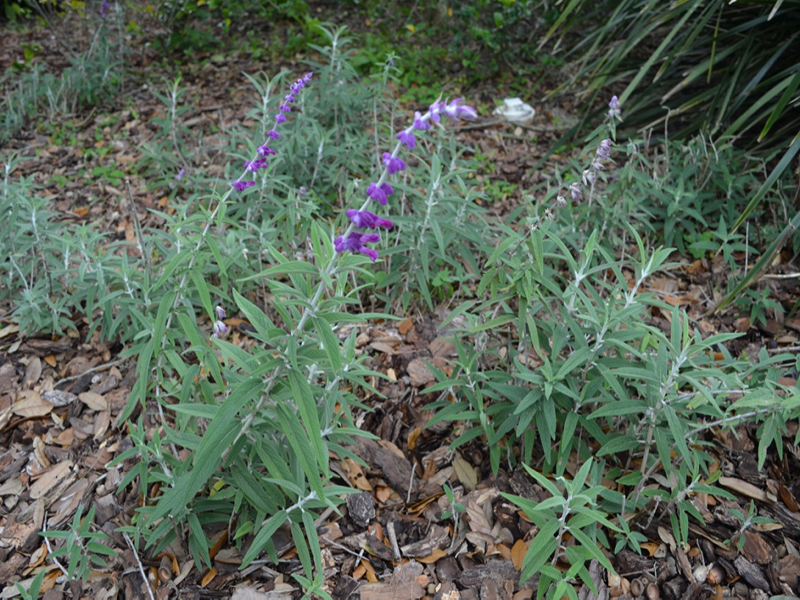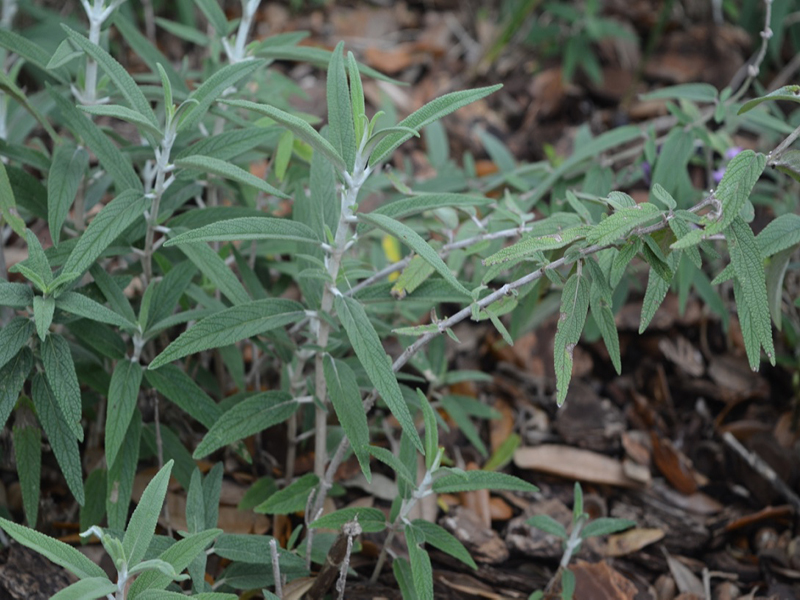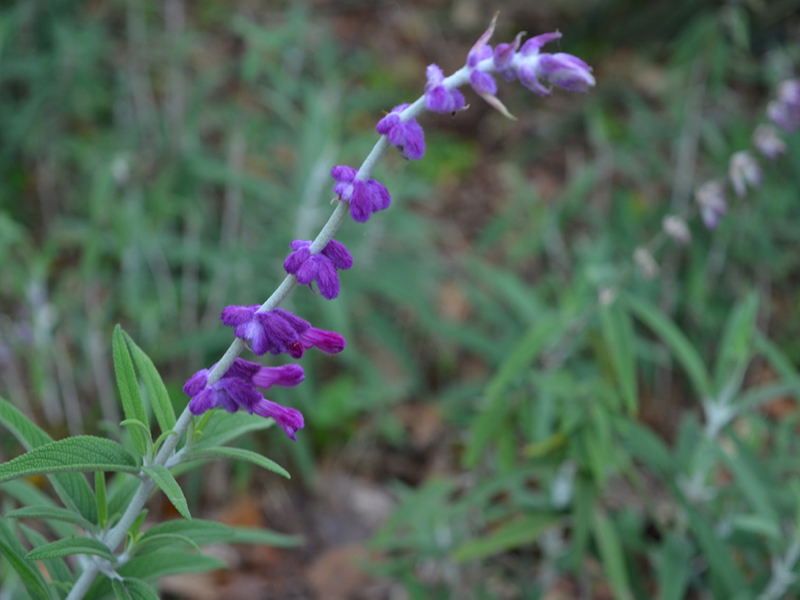Salvia leucantha (Maxican Bush, Mexican bush sage )
Botanical Information
| Family | Lamiaceae |
| Genus | Salvia |
| Species | leucantha |
| Category | Perennials |
| Origin | An evergreen shrubby perennial that is native to Central America and Mexico. |
Details
| USDA Hardiness Zone | 8a to 10b |
| USDA Hardiness Ref. | |
| Canadian Hardiness Zone | 8 |
| Canada Hardiness Ref. | |
| RHS Hardiness Zone | H5 - H2 |
| RHS Hardiness Ref. | |
| Temperature (°C) | (-12.2) - 1.7 |
| Temperature (°F) | 10 - 35 |
| Height | 0.5 - 1.3 m |
| Spread | 0.5 - 2.0 m |
| Flowering Period | August, September, October, November, December |
Description and Growing Information
| General Description | It is a low-maintenance plant. Flowers attract butterflies, bees and hummingbirds. |
| Landscape | Cut Flowers; flower borders and beds; wall-side borders; container plants; wildlife gardens. |
| Propagation | By softwood cuttings in spring or semi-hardwood in late summer, also by simple layering or seed. |
| Cultivation | Grows outdoors in moderately fertile, well-drained soil in full sun or dappled shade in a frost-free border. Protect from excessive winter moisture. |
| Pests | Powdery mildew, rust, stem rot, fungal leaf spots, whiteflies, aphids, mealybugs, spider mites. |
| Notable Specimens | Bok Tower Gardens, Lake Wales, Florida, United States of America. |
| Habitat | It is a herbaceous perennial that is native to subtropical and tropical conifer forests in central and eastern Mexico. |
| Bark/Stem Description | It grows up to 1.3 m high and 2 m wide, with numerous erect stems, often arching at their tips, and with long inflorescences. |
| Leaf Description | Foliage has a velvet-like texture. |
| Flower Description | Producing a very attractive late summer to frost bloom of showy bicolour flowers consisting of white corollas and longer-lasting funnel-form purple calyces. Flowers appear in dense, arching, terminal spikes (racemes to 25 cm long) that extend above the foliage. Flowers are attractive to butterflies and hummingbirds. Linear, lance-shaped, grey to green leaves (to 10 cm long) are borne in pairs on square stems. |



